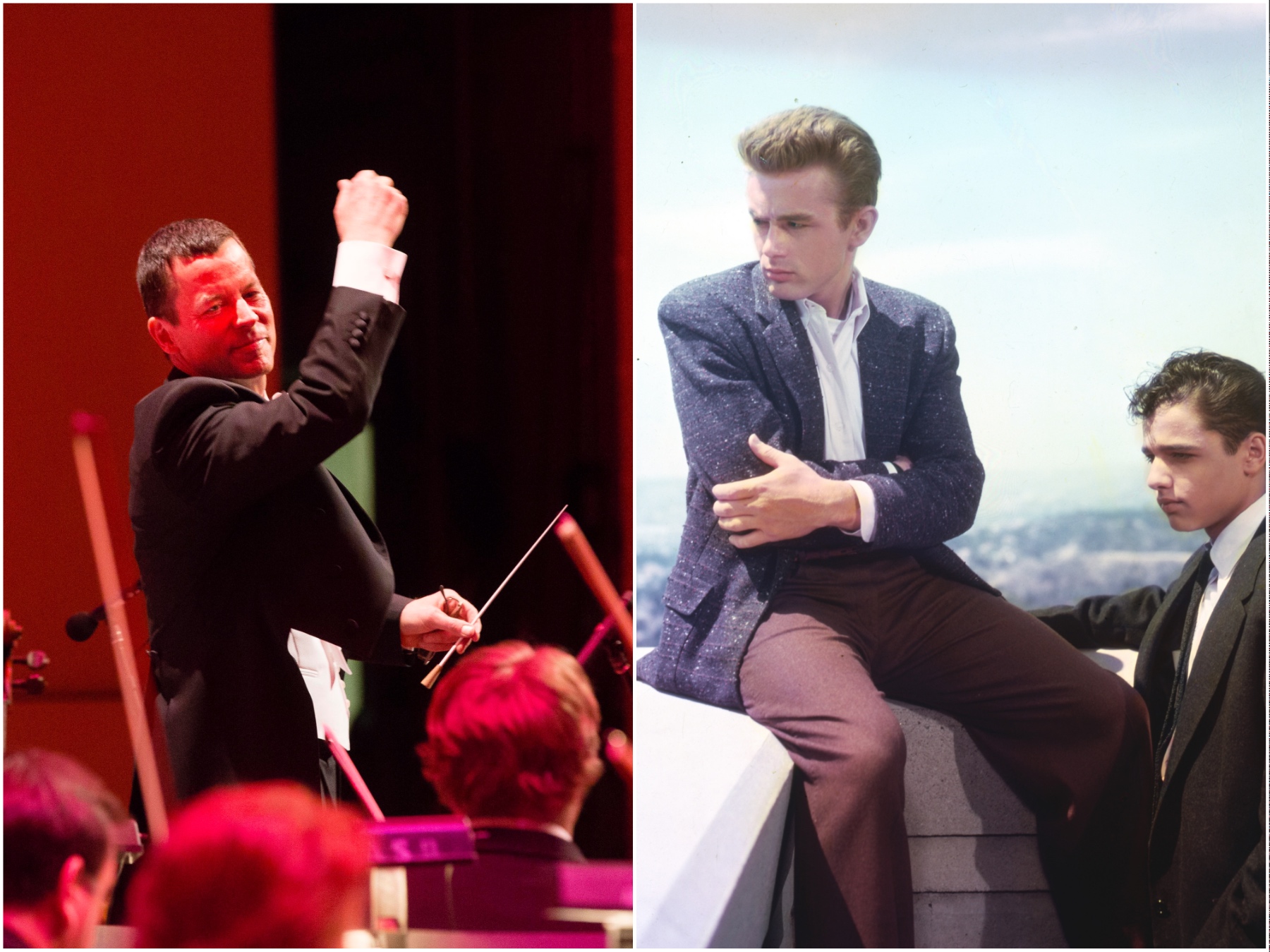
- Music
Rebel Without A Cause’s Groundbreaking Score Comes Back To Life With The LA Phil
Music and movies will join forces when the LA Philharmonic opens a new season of its in/Sight program performing live the score from Rebel Without A Cause at the Walt Disney Concert Hall. According to its conductor, Scott Dunn, no score or title could express better the magic of music and images. In addition to a standout performance by actor James Dean, Rebel without a Cause was the film score that many believe revolutionized film music.
Composer Leonard Rosenman, who was James Dean’s roommate at one time, merged serialism, jazz and classical rhythms for the score. He could have been Stravinsky, but Hollywood crossed his path. Dunn talked to us about the significance of Rosenman’s music and the harmonious mixture of images and score that will be presented live at the Walt Disney Concert Hall, starting November 17 with Rebel without a Cause. The in/Sight program will continue with On the Waterfront (November 18) and Casablanca (November 20), both conducted by David Newman.
What was your relationship with Rosenman?
_The composer was a great friend and mentor. And he was an extraordinary talent that even if he got many Emmys and a couple of Academy Awards he never really got the recognition he is due outside the small world of film music. It was him and Alex North the ones who really introduce modern music to film scoring.
Why did he revolutionize the music in Hollywood instead of a concert hall?
_ As a struggling composer he got to be James Dean’s roommate and piano teacher. Dean recommended him to Elia Kazan for the score of East of Eden and Elia recommended him to Nicholas Ray so Rebel without a Cause followed and many other movies. But in those days there was such a divide between concert and film music that the moment he was embraced by Hollywood he was rejected by the concert world. Leonard Bernstein and Aaron Copland or even Sergei Prokofiev doubled in film but they were already famous composers when they did that but Leonard was branded. He did many lovely concert pieces but he was always frustrated that he was not recognized in the concert world. It’s too bad because he never enjoyed fully the incredible success he had as a film composer.
How did you meet Rosenman?
_ I owe him my music. I played piano very well as a child but on those days I had terrible nerves and what I call bad attitude so I went to medical school and did a surgery residency. I met Leonard as an ophthalmology surgeon who never stopped the musical training. I saw him when I was selling my house and he saw my piano and my music on the floor and said ‘I thought this fellow was a doctor?’ He was very impressed and encouraged me to go back to the stage.
Is this concert your way to say thank you?
_This project is such a pleasure because his music is stunning and I feel honored to be able to present Leonard music this way. To finally show his best work in a concert hall like the Disney Hall, music strongly influenced by Stravinsky, (Arnold) Schoenberg and (Alban) Berg specially. But it’s also very important for me to get new interest in these classic film scores. There is a movement to show movies with live orchestra, which is fine as many will listen to an orchestra live for the first time. But unfortunately there is a tendency to show blockbusters to draw a big crowd, disregarding the quality of the music.
Who do you think are the Rosenman of today?
_We had so many great talents: John Barry, Nino Rota, my friend Richard Rodney Bennett, Elmer Bernstein, Jerry Goldsmith. The list goes on and on. Hans Zimmer, Danny Elfman and Alexandre Desplat too, even if they write in a different way. Randy Newman, Michael Giacchino and Thomas Newman have done a couple of good things. There is a lot happening but with all the technology available _ anyone can compose a film score and I don’t think people are as trained as they used to be. But concert music is also trying to find which way to go, treading water as well.

